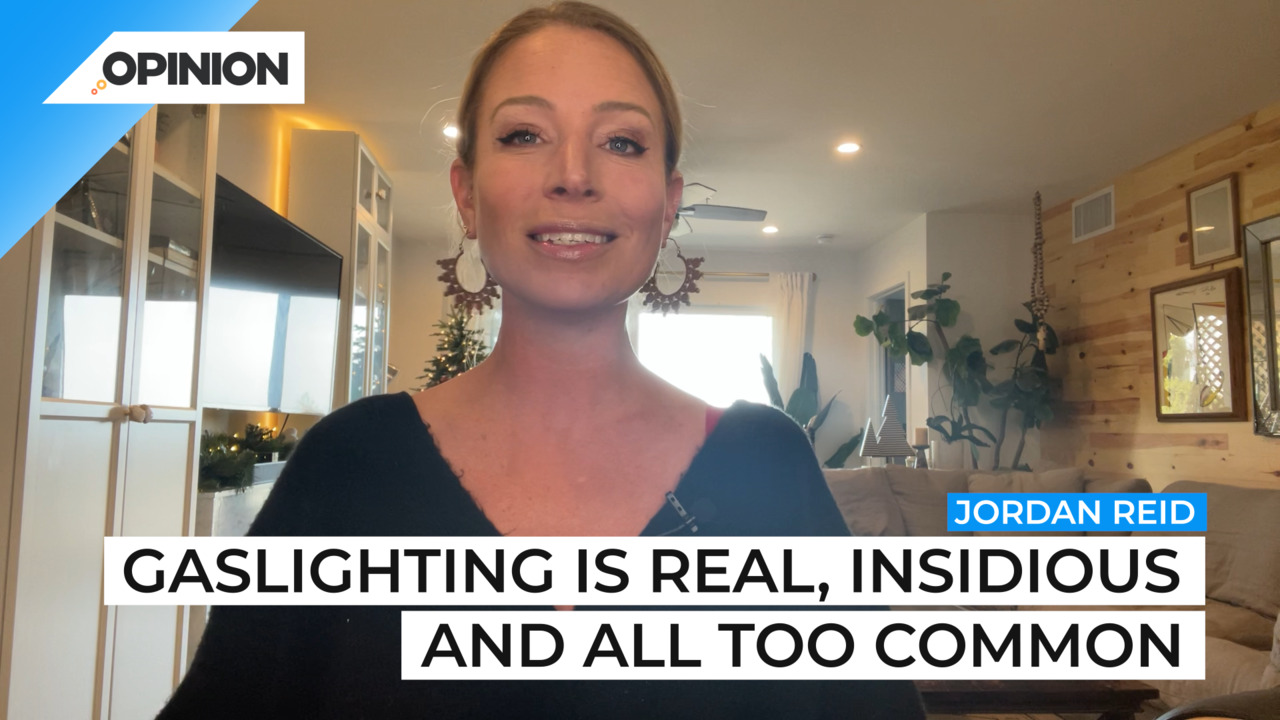
Commentary
-
Our commentary partners will help you reach your own conclusions on complex topics.
It’s official “gaslighting” is Merriam-Webster’s official Word of 2022. The word originated from the 1944 film Gaslight, but only entered the modern lexicon in the mid-2010s, so I thought it was worth taking a moment to explain what gaslighting is, what it’s not, and why people are so g-d irritated by the word.
According to Merriam-Webster, gaslighting is psychological manipulation that “causes the victim to question the validity of their own thoughts, perception of reality, or memories and typically leads to confusion, loss of confidence and self-esteem, uncertainty of one’s emotional or mental stability, and a dependency on the perpetrator.”
In short, it’s when someone makes you feel like your understanding of reality is false, with detrimental consequences. Which is more than just a lie – it’s not saying “It’s raining” when it’s sunny; it’s saying “you may think it’s sunny, but that’s only because you have such terrible eyesight you can’t even see the raindrops,” despite the fact that you know you can see perfectly well.
Some ways that gaslighting can be employed by abusers:
- Withholding – when the abuser pretends not to understand the victim
- Trivilalizing – when the abuser makes the victim feel that his or her needs or thoughts aren’t important
- Mislabeling – telling the victim that, say, what reads to them as ‘abuse’ is merely ‘protection’
- Countering – calling into question a victim’s distinct memories
- Forgetting – when the abuser pretends to forget incidents – a promise, say – that have factually occurred.
More examples: a parent telling a child repeatedly that they are “too sensitive” to get them to stop expressing difficult emotions, stereotyping the goals of an entire group as “crazy,” or even a medical professional telling a patient experiencing pain that it’s all “in their head.”
Generally speaking, gaslighting occurs within unequal power dynamics – but is, notably, not just simple disagreement, in that one party is actively manipulating the other, and usually over an extended period of time.
When somebody is trying to convince you of their beliefs, or even influence you, this is not gaslighting – but if they are trying to skew your perception of reality to suit their own ends – for example, repeatedly telling you that you are reacting irrationally to their problematic actions, to the point where you are beginning to wonder if you are, despite evidence to the contrary – it very well might be.
Detractors of the term argue that it is used too broadly – thereby diluting the word’s power and the practice’s very real impact on victims. Which, yes. On the most recent season of Bachelor in Paradise I saw an entire relationship break down due to a disagreement about whether itching and pain are the same thing, during one of the parties cried “gaslighting,” and…just…no.
Gaslighting is real, and it is insidious, and it is one of the most common ways for abusers to perpetuate harm. I do personally think that the term is overused in a social context, but, like “emotional labor” – another of my personal faves – I also believe that giving victims greater access to a word they can use to finally understand their situation can have incalculable benefits.
Oh, one of Merriam-Webster’s other top words was “loamy,” thanks to – apparently – a wrong Wordle answer. Loamy means “full of rich soil.” Now you know. You’re welcome.
-
RFK Jr.’s war on psychiatric meds risks decades of progress
On Feb. 18, during his first meeting with staff, Health and Human Services Secretary Robert F. Kennedy Jr. stated that he intends to address the possible overmedication of children and the risks of antidepressants — echoing a Trump executive order aimed at reducing childhood chronic disease rates. The order has sparked concerns over youth access… -
Loss of USAID makes America and the world less safe
Elon Musk and President Trump shocked the U.S. foreign policy community and America’s partners around the world with the early and abrupt closure of USAID, the United States Agency for International Development. USAID was a cornerstone of U.S. foreign policy and consistently received bipartisan support from Congress. Experts warned that the decision puts millions of… -
Trump’s ‘Gulf of America’ renaming is mere political spectacle
Aboard Air Force One, en route to the Super Bowl in New Orleans, President Trump held a news conference. As the flight entered international waters over the Gulf of Mexico, he issued an executive order renaming it the “Gulf of America” and declaring Feb. 9 as “Gulf of America Day.” The order, titled Restoring Names… -
President Trump politicizes DC plane crash as Americans mourn
Sixty-seven people died when a Black Hawk helicopter crashed into American Airlines Flight 5342 as it came in for a landing at Reagan National Airport on the night of Jan. 29 outside of Washington, D.C. Investigators are still examining the accident and putting details together, but believe that the helicopter was flying at too high… -
Project 2025 is Trumpism on steroids
President Trump has already taken several actions that align with Project 2025, a far-right blueprint for Trump’s second term developed by the Heritage Foundation. Among other intiatives, his administration has moved to eliminate DEI programs, reinstate service members dismissed for refusing the COVID-19 vaccine, and revive “Schedule F,” a policy making it easier to fire…
Latest Opinions
-
 Getty Images
Getty Images
San Francisco DA Charges 11 in SNAP fraud scheme involving $4M
-
 Getty Images
Getty Images
California’s minimum wage increase led to job losses, higher prices: Study
-
 Getty Images
Getty Images
Appeals court blocks Arizona’s proof of citizenship law, cites voter suppression
-
 Getty Images
Getty Images
‘The free world needs a new leader’: Trump-Zelenskyy make jaws drop
-
 Getty Images
Getty Images
Justin Timberlake cancels final US show in Columbus minutes before showtime
Popular Opinions
-
In addition to the facts, we believe it’s vital to hear perspectives from all sides of the political spectrum.






